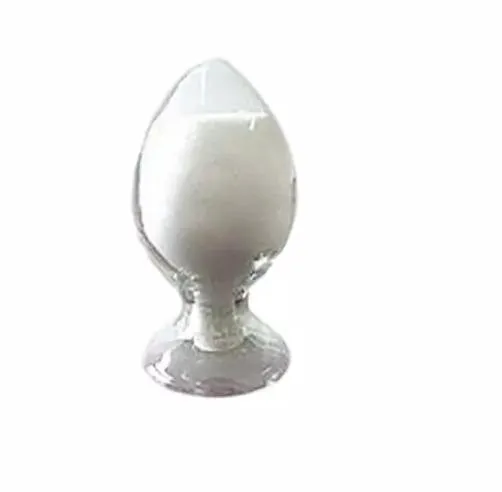Warning: Undefined array key "title" in /home/www/wwwroot/HTML/www.exportstart.com/wp-content/themes/1198/header.php on line 6
Warning: Undefined array key "file" in /home/www/wwwroot/HTML/www.exportstart.com/wp-content/themes/1198/header.php on line 7
Warning: Undefined array key "title" in /home/www/wwwroot/HTML/www.exportstart.com/wp-content/themes/1198/header.php on line 7
Warning: Undefined array key "title" in /home/www/wwwroot/HTML/www.exportstart.com/wp-content/themes/1198/header.php on line 7
- Afrikaans
- Albanian
- Amharic
- Arabic
- Armenian
- Azerbaijani
- Basque
- Belarusian
- Bengali
- Bosnian
- Bulgarian
- Catalan
- Cebuano
- China
- China (Taiwan)
- Corsican
- Croatian
- Czech
- Danish
- Dutch
- English
- Esperanto
- Estonian
- Finnish
- French
- Frisian
- Galician
- Georgian
- German
- Greek
- Gujarati
- Haitian Creole
- hausa
- hawaiian
- Hebrew
- Hindi
- Miao
- Hungarian
- Icelandic
- igbo
- Indonesian
- irish
- Italian
- Japanese
- Javanese
- Kannada
- kazakh
- Khmer
- Rwandese
- Korean
- Kurdish
- Kyrgyz
- Lao
- Latin
- Latvian
- Lithuanian
- Luxembourgish
- Macedonian
- Malgashi
- Malay
- Malayalam
- Maltese
- Maori
- Marathi
- Mongolian
- Myanmar
- Nepali
- Norwegian
- Norwegian
- Occitan
- Pashto
- Persian
- Polish
- Portuguese
- Punjabi
- Romanian
- Russian
- Samoan
- Scottish Gaelic
- Serbian
- Sesotho
- Shona
- Sindhi
- Sinhala
- Slovak
- Slovenian
- Somali
- Spanish
- Sundanese
- Swahili
- Swedish
- Tagalog
- Tajik
- Tamil
- Tatar
- Telugu
- Thai
- Turkish
- Turkmen
- Ukrainian
- Urdu
- Uighur
- Uzbek
- Vietnamese
- Welsh
- Bantu
- Yiddish
- Yoruba
- Zulu
Sep . 07, 2024 21:38 Back to list
Propylene Glycol in Salad Dressing - Safety and Uses
The Role of Propylene Glycol in Salad Dressing
Salad dressing is an essential component of salads, enhancing their flavor and texture. In recent years, the ingredients used in these dressings have come under scrutiny due to increasing consumer demand for transparency and healthfulness. One such ingredient that has garnered attention is propylene glycol, a synthetic compound that serves multiple purposes in food production, including salad dressings.
Understanding Propylene Glycol
Propylene glycol is a colorless, odorless liquid that is derived from propylene oxide, a petroleum byproduct. It is classified as a Generally Recognized As Safe (GRAS) substance by the Food and Drug Administration (FDA) when used in food at specific concentrations. This safety status is attributed to extensive research and studies demonstrating that propylene glycol does not pose significant health risks when consumed within recommended limits.
The compound is commonly used in food products for various reasons, including as a humectant, stabilizer, and solvent. In salad dressings, propylene glycol helps to retain moisture, ensuring that the dressing remains smooth and prevents separation of oil and water components. Its ability to enhance texture can improve the overall mouthfeel of the dressing, thus elevating the consumer's eating experience.
Benefits in Salad Dressings
Incorporating propylene glycol into salad dressings brings several benefits. First and foremost, it acts as an emulsifier. By allowing water and oil to blend more effectively, it helps in maintaining a consistent and appealing appearance. This uniformity is particularly important in products such as vinaigrettes and creamy dressings, where separation can lead to an unappetizing look.
propylene glycol in salad dressing

Furthermore, propylene glycol can extend the shelf life of salad dressings. As a preservative, it helps prevent spoilage and the growth of harmful bacteria, ensuring that the dressing remains safe and flavorful for longer periods. This is especially advantageous for commercial producers, who benefit from reduced waste and increased consumer satisfaction when products remain fresh.
Consumer Concerns
Despite its benefits, the use of propylene glycol in food products raises concerns among some consumers. As people become more health-conscious and wary of artificial ingredients, the presence of any synthetic compound can be a source of skepticism. This is compounded by the clean-label movement, which encourages food manufacturers to use only natural, recognizable ingredients. Those concerned about health may opt to avoid processed dressings altogether or seek alternatives that explicitly exclude synthetic additives.
In response, many brands are adapting to consumer demands by reformulating their dressing recipes to either reduce or eliminate propylene glycol. As a result, shoppers may now find a range of products that use natural emulsifiers and preservatives instead.
Conclusion
Propylene glycol plays a vital role in the formulation of salad dressings, contributing to texture, stability, and shelf life. While it is recognized as safe by regulatory authorities, consumer perception is gradually shifting, pushing manufacturers toward more natural alternatives. Ultimately, the choice lies with the consumer, who must weigh the benefits against their preferences for clean, simple ingredients when selecting salad dressings for their meals. The evolving landscape of food production illustrates a broader trend toward balancing food science with consumer desire for healthy eating options.
Latest news
-
Certifications for Vegetarian and Xanthan Gum Vegetarian
NewsJun.17,2025
-
Sustainability Trends Reshaping the SLES N70 Market
NewsJun.17,2025
-
Propylene Glycol Use in Vaccines: Balancing Function and Perception
NewsJun.17,2025
-
Petroleum Jelly in Skincare: Balancing Benefits and Backlash
NewsJun.17,2025
-
Energy Price Volatility and Ripple Effect on Caprolactam Markets
NewsJun.17,2025
-
Spectroscopic Techniques for Adipic Acid Molecular Weight
NewsJun.17,2025

